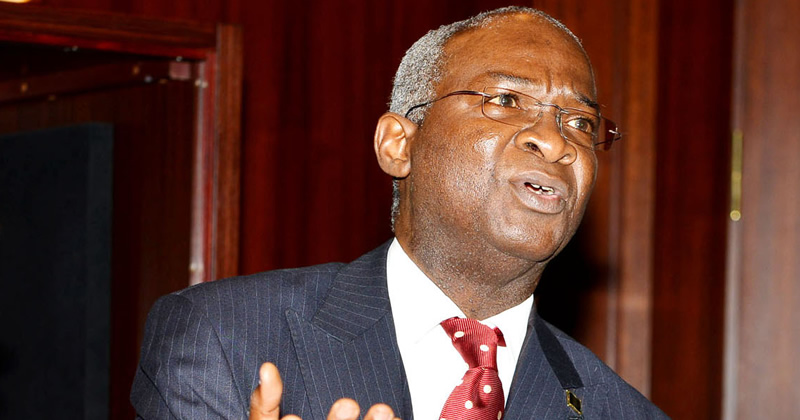Babatunde Fashola, Minister of Works and Housing has expressed fears that Nigeria may experience the Brexit experience.
This disclosure was made by the works minister while speaking as a guest speaker at the 76th anniversary of the Island Club in Lagos at the weekend.
Fashola said Brexit’s experience is inevitable unless youths in the country are given political education to make them understand the issue of restructuring.
Brexit refers to the decision by some people in Britain for the country to leave the European Union (EU), a choice that has thrown the country into confusion.
Fashola argued that the quest for better life had resulted in relentless agitations by some Nigerian groups pushing diverse ideologies in their demands for restructuring. He said that Britain was currently grappling with the problem of whether to stay in the EU or not because the youth segment of the population did not fully understand the implications of the referendum they participated in.
He stressed the need for adequate education of the younger segment of the Nigerian population to ensure those right choices were made in repositioning the nation’s diversity to avoid the Brexit experience.
Speaking on “Restructuring: Lessons from Brexit,” Fashola gave a detailed history of the evolution of the United Kingdom, which he said, was similar to Nigeria’s 1914 amalgamation that merged the Northern and Southern Protectorates.
He explained that the insatiable quest for better life was the root of the clamor for restructuring in Nigeria, noting that measures to create new identities had compounded problems throughout human history.
“Let us decompose that word and let everybody be specific. There is so much confusion. Don’t hide restructuring under one word. Bring it out, so that we know what to choose. Some people are calling for parliamentary system of government.
The new generation must be told that it was the parliamentary system that caused crisis which was difficult to resolve and which led us into civil war. Where people are diverse, a federation is better. There is a great deal of work to be done by the protagonists.’’
Fashola listed countries that broke up without being able to resolve the issues of separation to include Yugoslavia, Sudan, the Soviet Union, North and South Korea, warning against agitations to split Nigeria. The minister said there were currently 86 unresolved boundary disputes as a result of state creations in the country, explaining that the Federal Government was still building secretariats for some new states.
